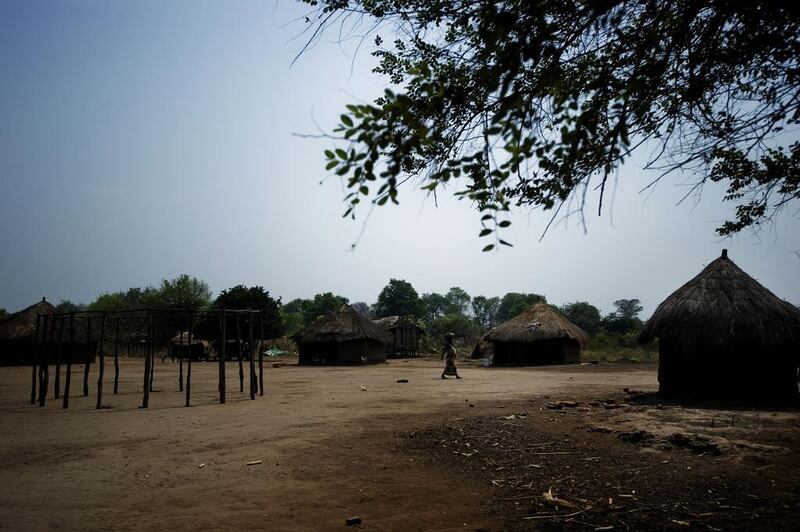Mia Couto's new novel Confession of the Lioness is set in Kulumani, a small village in rural Mozambique made fragile by the atrocities suffered during the civil war and now "atrophied by fear" by a new threat: its womenfolk are being attacked by lions.
The novel begins in the immediate aftermath of the most recent killing, that of 32-year-old Mariamar Mpepe’s sister Silência. Following her death, their father Genito imprisons Mariamar in the family home, forbidding her from venturing outside. Cut off from those around her, Mariamar is haunted by her sister’s ghost and trapped in a world of shattered memories. She remembers the hunter Archangel Bullseye who came to their village 16 years ago to kill a crocodile and who saved Mariamar from being raped by the village policeman-cum-hangman, Maliqueto Próprio, before disappearing from her life again.
The hunter, however, is about to return, hired by the villagers to rid them of the lions. He brings his own emotional baggage with him though: “Where for others there are memories, for me there are merely lies and illusions.”
The novel alternates between the perspectives of Mariamar and Bullseye – a chapter narrated by each in turn – and though their lives don’t intertwine until the very end of the book, together their experiences combine to create a haunting portrait of a community under threat, though not, it slowly becomes apparent, from the source originally assumed.
Desperate to “escape from my family, and break out of my own life”, Mariamar attempts to flee the village by route of the local river, but the skiff she appropriates for her journey becomes stuck in the riverbed. Marooned in the middle of the river, Mariamar watches transfixed as out of the undergrowth on the riverbank emerges a lioness, and she realises the villagers have made a mistake:
“They are all convinced that it is male lions who are threatening the village. It’s not. It’s this lioness, delicate and feminine as a dancer, majestic and sublime as a goddess, it’s this lioness that has spread such terror through the neighbourhood. Powerful men, warriors equipped with sophisticated weapons. All of them have prostrated themselves by fear, vanquished by their own impotence.”
A female beast may well reduce Kulumani’s warriors to terrified wrecks, but within the village itself the men reign supreme. As Mariamar’s memories unspool and the hunt for the murderous lions begins, what emerges is a portrait of a community in which violence against women is endemic; where they’re considered “no one” by their menfolk.
Shortly after she and lioness lock eyes in a greeting of “sisterly respect” across the waters of the river, Mariamar is discovered by Próprio. With no busybodies in sight this time he attempts to take what he feels he’s owed, ridding himself of his clothes and “crawling” towards her like a serpent closing in on its kill, “slithering and slobbering”. Mariamar, however, turns into a ball of violent rage and shields herself with all the defences of a big cat, “hackles raised, screaming, spitting and scratching”.
Such deliciously visceral bestial metaphors initially read as apt imagery on Couto’s part, but fairly swiftly we learn that in this novel the dividing line between animals and humans isn’t as simple and straightforward as we might assume: “People had become animals, and animals had become people.”
Whether this transmogrification is real or we’re to read it metaphorically is never quite made clear, a distinction that’s all the harder to make given that Couto’s writing about a community in which the spirits of dead ancestors hold as much, if not more sway than some of the living.
Ultimately though it’s a discrimination that hardly matters since the tension becomes increasingly palpable as the novel builds to its bloody dénouement.
Seeped in a dark and deadly magical realism, Confession of a Lioness examines the all-too-tangible and far-reaching effects of brutalities enacted by men against each other – "It was the war that explained the tragedy of Kulumani. Those lions weren't emerging from the bush. They were born out of the last armed conflict" – and how women often pay the ultimate price for such aggression.
And so too a similar juxtaposition is at work at the very level of the language itself, the murky subject matter rendered in the most poetic of prose – “It was a long, empty afternoon, the type that spins out like some contagious disease” – all deftly translated from the original Portuguese by David Brookshaw.
Lucy Scholes is a freelance journalist who lives in London.





